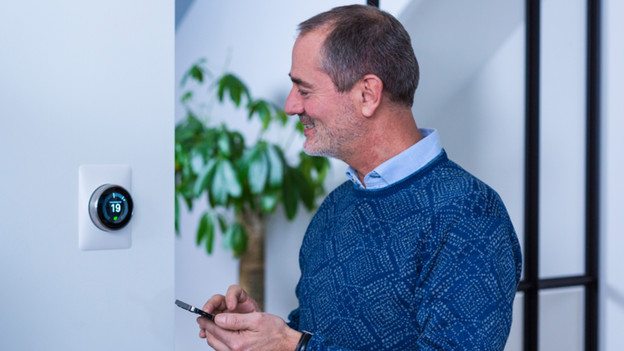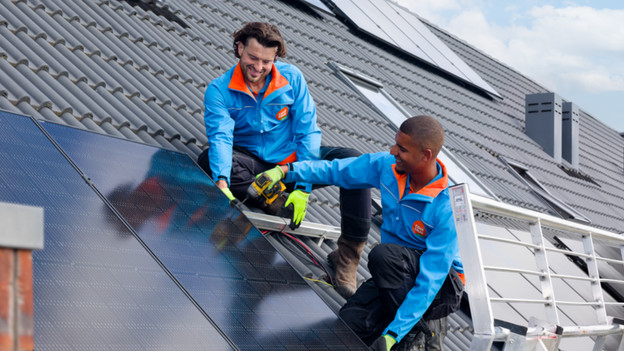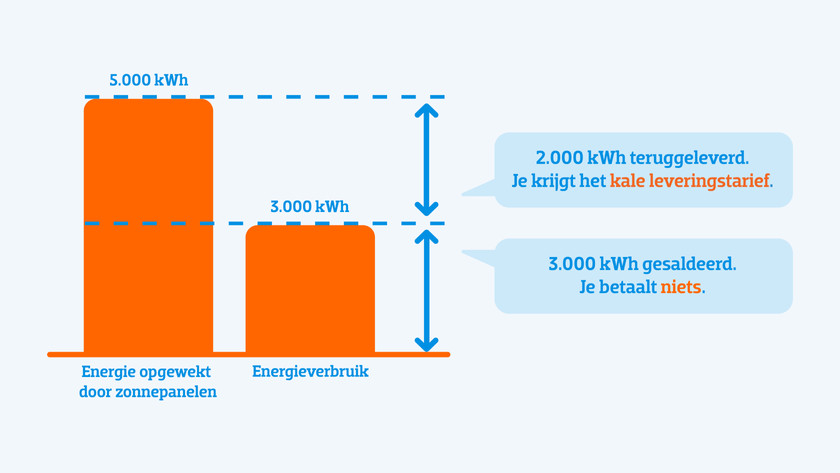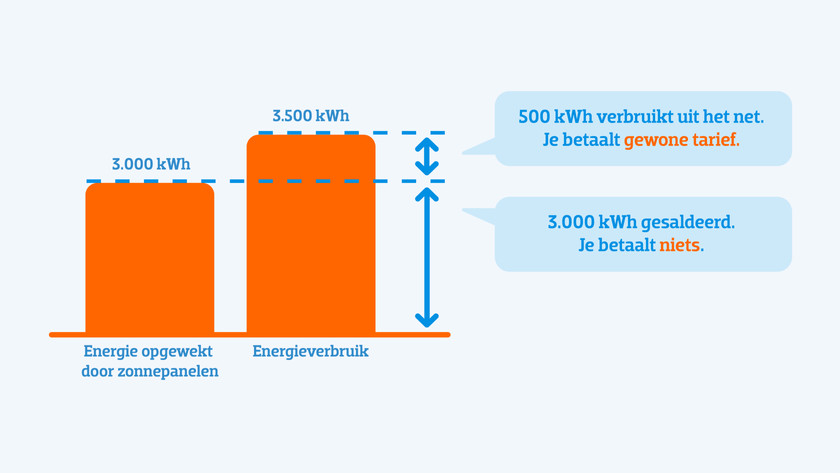
What does the net-metering regulation mean for you?
Latest update about the net-metering law
On 17 September 2024, the Dutch Cabinet shared the most important plans for 2025. If the Dutch Cabinet approves the legislative proposal, the net-metering regulation will stop per 1 January 2027. You'll then receive a compensation for feeding energy back into the power grid. In this article, we'll tell you more about what this means for you and why you should choose solar panels now.
What does net-metering mean?

Net-metering means that you cancel out the energy you generate and feed into the power grid with the energy you consume. This happens on the final settlement of your annual contract. Your energy supplier will check how much solar power you generated and what your consumption was in the past year. Did you use more energy than you generated? You'll pay extra for your consumption. Have you generated more than you used? You'll receive a feed-in tariff. You can find how high your feed-in tariff is in your energy contract.
How does this work?
The price of 1kWh of energy consists of different parts. In this article, we'll explain the most important 2: the bare delivery rate and the energy tax. The net-metering regulation cancels out the energy tax, so you only pay the bare delivery rate. Even when you feed energy into the power grid, this rate is reimbursed. You have to register your solar roof with your network operator to net-meter.
Net-metering and feed-in costs

Because the supply and demand of energy always differ, the energy prices often differ as well. As a result, energy suppliers are making expenses with the net-metering regulation. That's because energy is sometimes more expensive than what you pay for the bare delivery rate as a solar panel owner. For this difference, we ask for feed-in costs. You still pay less for energy with your own solar roof than you would if you didn't have solar panels.
Biggest advantage: short payback period

With the net-metering regulation, you cancel out the generated energy with your total consumption. That way, you can quickly save on your energy bill and the payback period of your solar panels is shorter. Especially when the energy prices rise again. You can quickly earn back your solar roof and make a profit after that this way. Don't have your own solar roof? Our advisors can tell you all about what you can save and earn in total during an advice appointment without obligations.
Consume energy right away or store it

Sometimes, the energy prices are low or even negative. Instead of feeding your generated energy into the power grid at that time, it's better to use as much of it as you can right away. For example, turn on your washing machine or charge your electric car on a sunny afternoon. That way, you consume cheap energy and save on your costs. It's also possible to store energy with a home battery. For now, we don't recommend buying a home battery. You can read more on this in the following article.
Consume energy you generate

With a dynamic energy contract, you can save on your energy bill even more. This is useful when you have your solar panels in an east-west setup or you drive an electric car. When you plan your consumption smartly with dynamic hourly rates, you consume your energy right away and save on your costs.
Solar panels
Bright idea.


